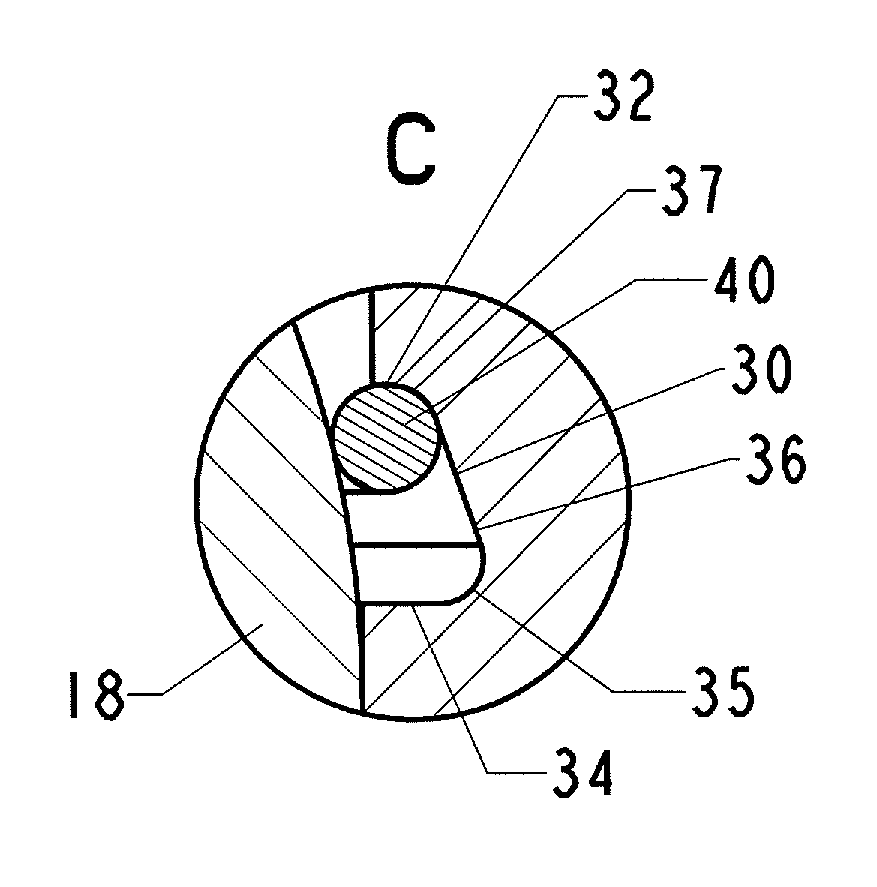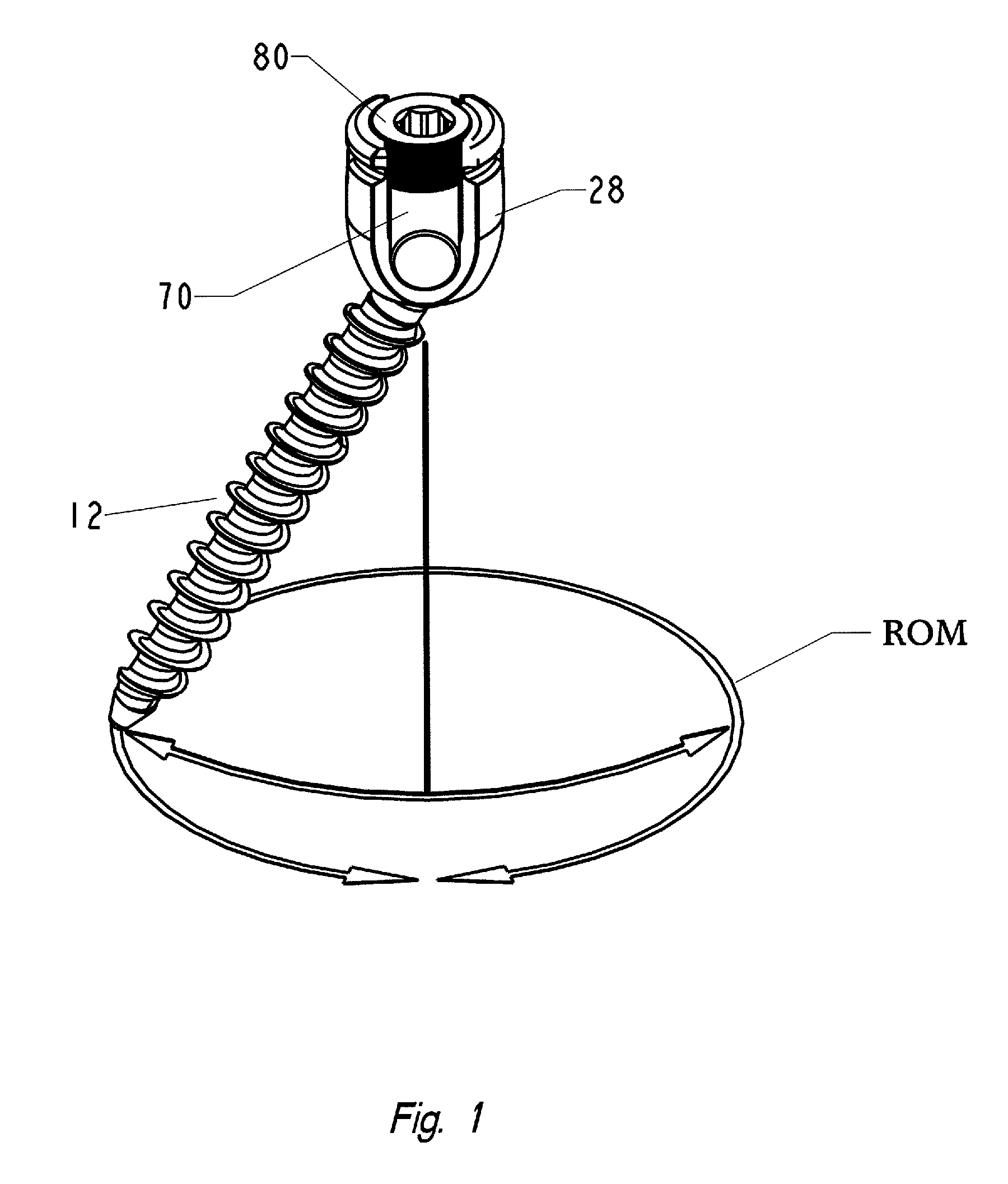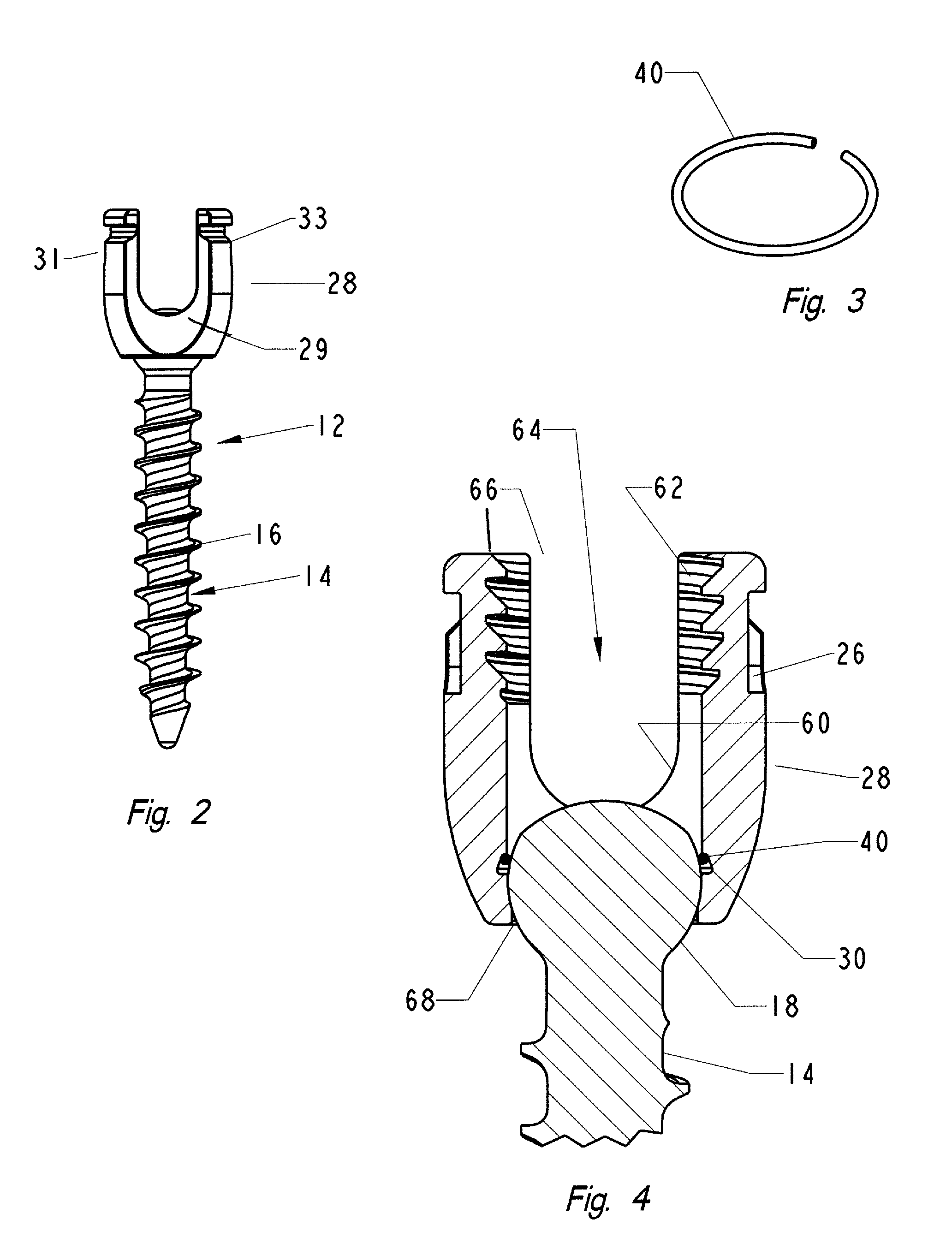Top loading polyaxial ball and socket fastener
a polyaxial ball and socket technology, applied in the field of polyaxial ball and socket fasteners, can solve the problems of large inventory, inability to determine the structure of the bone, and the anchoring screw may still require angular insertion, so as to reduce the amount of inventory
- Summary
- Abstract
- Description
- Claims
- Application Information
AI Technical Summary
Benefits of technology
Problems solved by technology
Method used
Image
Examples
Embodiment Construction
[0072]While the present invention is susceptible of embodiments in various forms, there is shown in the drawings and will hereinafter be described a presently preferred embodiment with the understanding that the present disclosure is to be considered an exemplification of the invention and is not intended to limit the invention to the specific embodiments illustrated.
[0073]Referring generally to the Figures, disclosed is an exemplary embodiment of the polyaxial ball and socket fastening system adapted for use in a spinal fixation system. The fastening system includes a spherical ball connector (18) secured or formed integrally with a bone anchor (12) and connecting assembly that includes a snap-in type receptacle for the spherical ball connector (18) to form a polyaxial joint allowing a range of motion (ROM). The connector assembly (28) also includes a receiver that may be used in conjunction with a connecting rod member (70) for securing at least two bone anchors (12) together.
[007...
PUM
 Login to View More
Login to View More Abstract
Description
Claims
Application Information
 Login to View More
Login to View More - R&D
- Intellectual Property
- Life Sciences
- Materials
- Tech Scout
- Unparalleled Data Quality
- Higher Quality Content
- 60% Fewer Hallucinations
Browse by: Latest US Patents, China's latest patents, Technical Efficacy Thesaurus, Application Domain, Technology Topic, Popular Technical Reports.
© 2025 PatSnap. All rights reserved.Legal|Privacy policy|Modern Slavery Act Transparency Statement|Sitemap|About US| Contact US: help@patsnap.com



